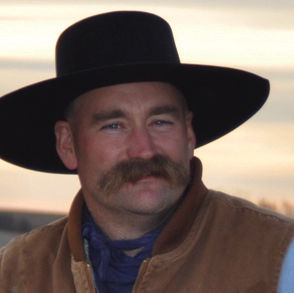There is a tremendous amount of noise in today’s world and what I have figured out, in the middle of that chaos, is that we have shifted our focus from what is healthy and important for life in the future to divisionary tactics.
Yes, the attack on every single thing we believe in can cause you to do one of two things: stay focused on the wrong thing or just say “forget it, we can’t fix it anyway.” Well, in a statement I never thought I would make, thanks to the University of Chicago, I am back on top of the things that matter most for a free future.
Recently news networks picked up on a story from the University of Chicago about the consumption of whole milk and fatty beef or lamb:

“A long-chain fatty acid found in meat and dairy products improves the ability of certain immune cells to kill cancer cells, according to a new study by the researchers from the University of Chicago.”
But “the whole” credit goes to the ruminant animal, greatly underappreciated for its contribution to improving both planet and human health. I now find some very interesting information about the essential necessity of ruminants in regard to maintaining any sort of future whatsoever.
In 2016, Oregon State University did a great job laying out the facts about how important the grazing animal is today for planet health tomorrow:
“Grazing ruminant animals is an efficient way to produce food for humans. Grazing animals on land that is unsuitable for crop production more than doubles the land area in this country that can be used to produce food. Ruminant animals can use plant cell walls as a major source of dietary fiber and energy.”
The essential importance of animal agriculture as a component of feeding the global population is ignored for one reason—it works so well. If people were hungry, they would be seeking more information and more food. The following information is from none other than the Food & Agricultural Organization within the United Nations:
“Livestock use large areas of pastures where nothing else could be produced. Animals also add to agricultural production through manure production and drought power. Further, keeping livestock provides a secure source of income for over 500 million poor people in many rural areas.
“This study determines that 86% of livestock feed is not suitable for human consumption.”
If we break down exactly what has been achieved under the management of human beings, it is mind boggling.
Over the past 55 years, global meat production has almost quadrupled from 84 million tons in 1965 to 340 million tons in 2020. That increase has not really been accomplished with more animals but rather with more production per animal. It all goes back to the basic unspoken rule within the farming sector—how we can produce more with less.
Perhaps the most interesting fact is that even the National Library of Medicine has significant information about the importance of the ruminant animal:
“These microbes interact closely to breakdown plant material that cannot be digested by humans, whilst providing metabolic energy to the host and, in the case of archaea, producing methane. Consequently, ruminants produce meat and milk, which are rich in high-quality protein, vitamins and minerals, and therefore contribute to food security. As the world population is predicted to reach approximately 9.7 billion by 2050, an increase in ruminant production to satisfy global protein demand is necessary, despite limited land availability, and whilst ensuring environmental impact is minimized.”
Suffice it to say, I am really high on the ruminant animal as man’s partner in saving mankind and I plan to share that with anybody that will listen, as often as I can.
Editor’s note: The views expressed here are the author’s own and do not represent the views of High Plains Journal. Trent Loos is a sixth generation United States farmer, host of the daily radio show, Loos Tales, and founder of Faces of Agriculture, a non-profit organization putting the human element back into the production of food. Get more information at www.LoosTales.com, or email Trent at [email protected].

